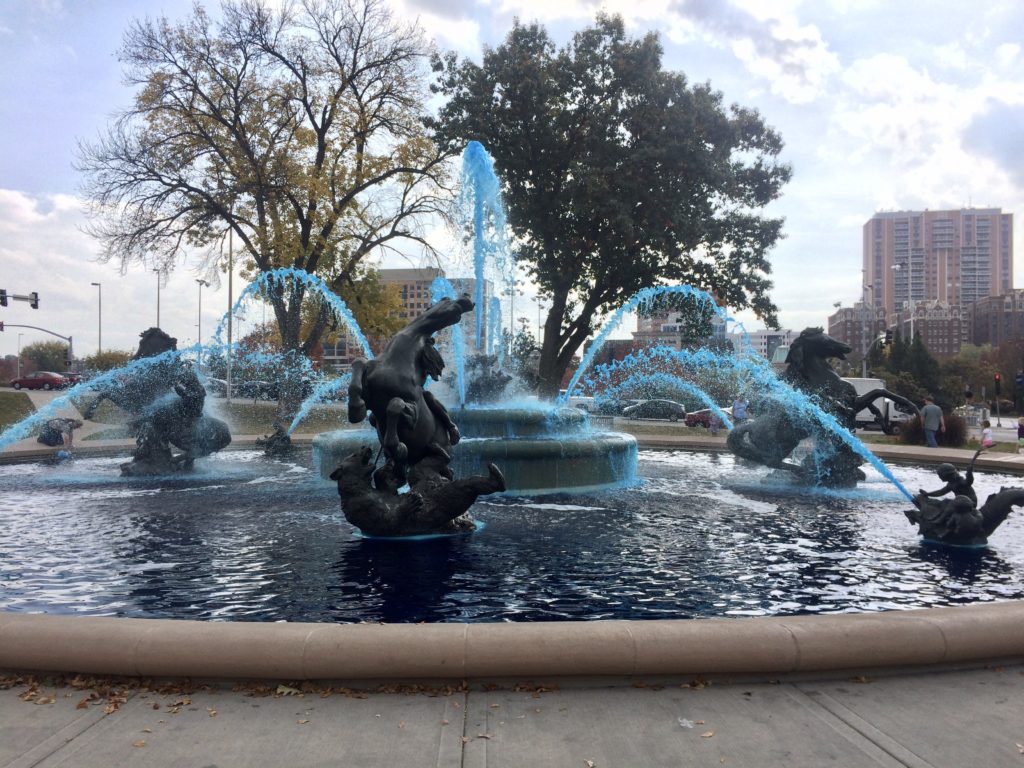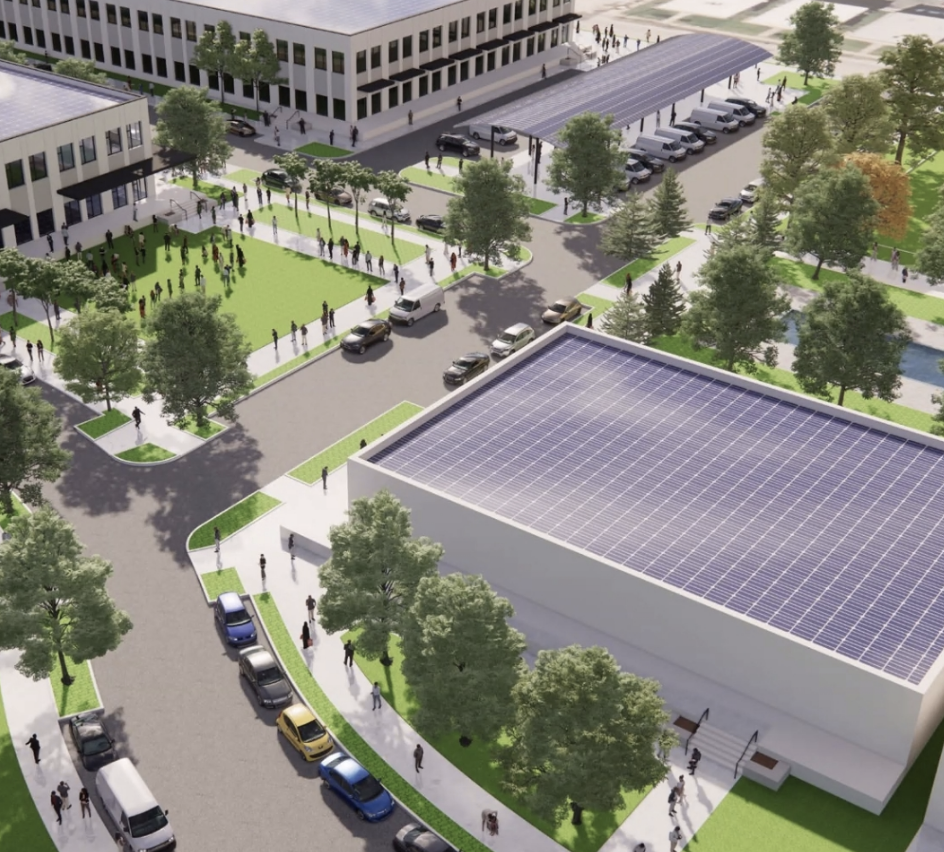
The Nichols family voiced support for the movement to rename the J.C. Nichols Fountain and Parkway on Tuesday ahead of the Board of Parks and Recreation decision.
“We have a great passion for the Kansas City spirit, and for the people in every corner of our community who bring it to life,” said Kay Callison, Miller Nichols Charitable Foundation president and granddaughter of J.C. Nichols. “It is important to each of us that we publicly endorse the name change for the greater good of the city we love.”
After Parks and Recreation Commissioner Chris Goode penned a letter on June 9 calling for their renaming, the Parks Board held two community engagement sessions to hear from residents in recent weeks, one of which was held virtually.
The Parks Board considered the removal of Nichols’ name at a meeting Tuesday, June 30.
Goode, who proposed the name change, said removing Nichols’ name is not a solution or a moment for celebration, but a gesture toward what’s right and the opportunity to open a long-overdue dialogue in Kansas City and the country.
“While it seems unrelated, my heart instantly, and my mind, goes to the young man LeGend that lost his life and I haven’t been able to really shake the idea of what happened to that kid as a father,” Goode said of 4-year-old who was shot while sleeping in his bed earlier this week. “It’s this big pot of just muck that we find ourselves in, and we find outcomes like that stemming from hatred that’s been embedded into our country and our city for far too long.”
Commission President Jack Holland said removing Nichols’ name is not about erasing history but responding to history.
“As we consider this proposal, we should not forget the significant contributions made by Mr. Nichols to the fields of land use planning and design standards,” Holland said. “But the use of racially restrictive covenants led to segregated neighborhoods in Kansas City, which led to racial isolation and resulted, in my opinion, in severe concentration of poverty.”
He said Kansas Citians should dedicate themselves to creating neighborhoods that are welcoming, thriving and safe, of which the city’s parks and recreation department should be a critical component.
Commissioner Scott Wagner recognized the overwhelming community participation in the decision, including from the Nichols family and the foundation.
“I also want to recognize that we have more work to do,” Wagner said. “We started this year, before pandemics and such things, talking about how to properly recognize Dr. Martin Luther King Jr. and there are those out there who thought that the actions that we take today would resolve that, too, and I am very happy to say that work will continue because there is still work to be done in that way.”
Both the resolution to remove Nichols’ name from the fountain and the parkway on the Country Club Plaza passed unanimously.
“Were he alive today, we know for sure that he would be proud to see us taking these actions,” Kay Callison said of her father, Miller Nichols. “We will continue our quiet, heartfelt foundation work to ensure that we can support the values he instilled, toward the betterment of the city we all love.”
The fountain stands in Mill Creek Park at J.C. Nichols Parkway and Emanuel Cleaver II Boulevard on the Country Club Plaza. The park has been the site of dozens of police brutality protests over recent weeks.
Jesse Clyde Nichols developed neighborhoods in the early 1900s with covenants designed to effectively keep black Kansas Citians out of certain neighborhoods.
“No person accelerated white flight, redlining, and racial division in the Kansas City area more than J.C. Nichols,” Kansas City Mayor Quinton Lucas said in a statement. “The time has long passed that we remove Kansas City’s memorials to his name. I fully support Commissioner Goode’s efforts to rename J.C. Nichols Fountain and Parkway.”
Goode said these protests illustrated the need for these steps, and that it was time to end the acceptance of “racial inequalities created by J.C. Nichols.”
He proposed the parkway be renamed for Dr. Martin Luther King Jr. and the fountain be renamed the Dream Fountain.
“This is a defining moment for our City,” said Mark Callison, grandson of Miller Nichols. “Our family stands squarely behind the spirit of diversity, equality and social justice that has taken hold in our region and in our nation. My grandfather Miller taught us these values. The best way we knew to communicate with them was to say to Kansas Citians from every corner of this community, ‘Kansas City, the Nichols Family stands with you.’”
Foundation Boardmember Terry Dunn said that he welcomed the opportunity to support the family’s actions.
“Today, the Nichols family has acted with humility and passion for Kansas City,” Dunn said. “I’m honored to share in their efforts to make equality and social justice a critical priority. We will all be better and stronger for it.”
The Nichols family announced the commitment of $100,000 to the City of Fountains Foundation toward continued support and maintenance of the fountain.
The board will continue to gather input on choosing an appropriate name replacement until July 9, according to a press release from Parks and Recreation.


















